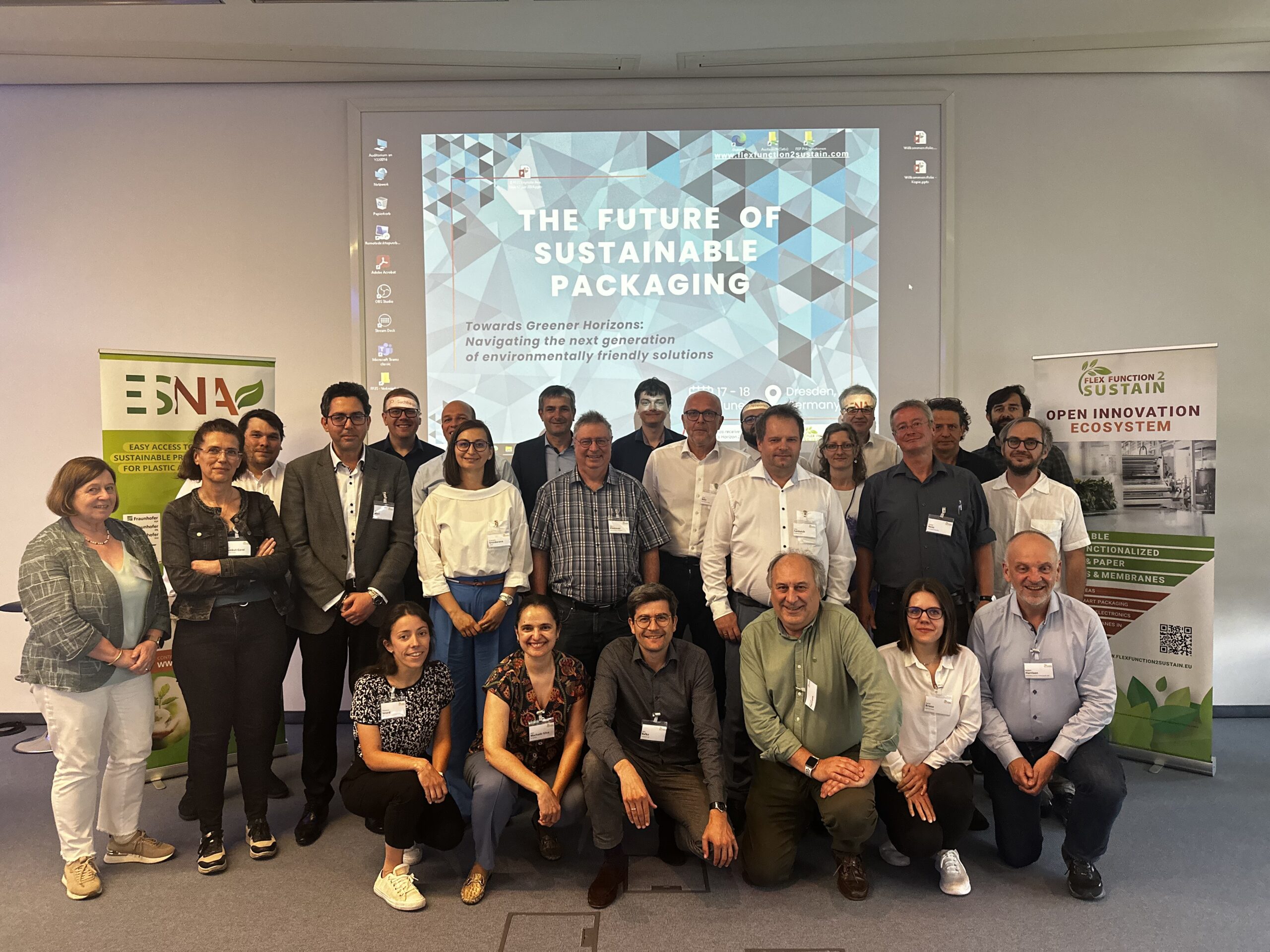Innovations for Next-Gen Sustainable Packaging
June 18On June 17-18, 2024, the industry workshop titled ‘The Future of Sustainable Packaging’ took place in Dresden, Germany. Organized by Amires and hosted by the Fraunhofer Institute for Electron Beam and Plasma Technology (FEP), the face-to-face workshop was the Final Public Event of the FlexFunction2Sustain project. The event aimed to provide insights into the project’s outcomes and offer valuable perspectives on industry trends, key technologies, and challenges. Additionally, it informed stakeholders about current needs and future visions in sustainable packaging.
During the workshop, high-caliber speakers and representatives from leading companies in the packaging industry provided participants with fascinating insights into current requirements and emerging trends. The event began on June 17th with an evening session that envisioned the future of packaging from an industry perspective. This session featured a keynote speech on sustainability challenges in the food value chain, presented by Ana Machado Silva, the Area Coordinator for Food & Sustainability R&D and Incentives at MC, a leader in the Portuguese market.
On the second day, Antonio Ferrandez-Garcia, Policy Officer at DG Research & Innovation of the European Commission, opened the session by providing the EC’s perspective on the Open Innovation Test Beds (OITB). He introduced the new initiative for Advanced Materials for Industry Leadership, which aims to strengthen the EU’s resilience, enhance strategic autonomy, and support the Green Deal. FlexFunction2Sustain successfully showcased its portfolio, highlighting the impact of ESNA and OITB initiatives beyond the funded period. The event featured high-impact innovations in the packaging sector, including Capri-Sun’s fully recyclable drink pouches, and advancements by HPX Polymers, LEYGATECH, Sinbiosys, and Toray Films Europe. Additionally, the companies MYCO and Papiertechnische Stiftung PTS provided user insights by defining future needs in sustainable packaging.
Key Takeaway Messages:
- Collaboration among multiple stakeholders is essential for addressing complex issues effectively; Science and innovation are pivotal in shaping the future of food and packaging;
- Challenges persist but also do opportunities to change the food sector;
- There is a critical need to develop sustainable flexible packaging based on biodegradable or biobased polymer films;
- Surface technologies and development tools are available. Roll-to-roll surface technologies can help to adapt biodegradable or biobased polymer films to the need of packaging applications;
- Balancing packaging trade-offs: Ensuring both recyclability and food preservation are prioritized.
In conclusion, advancing towards a more circular economy for plastics demands innovation and collaborative efforts across the entire value chain. Moving forward, our focus remains on refining formulations for enhanced recyclability, aligning strategies with sector partners, evaluating industrialization opportunities, and fostering ongoing discussions for the adoption of sustainable solutions.

